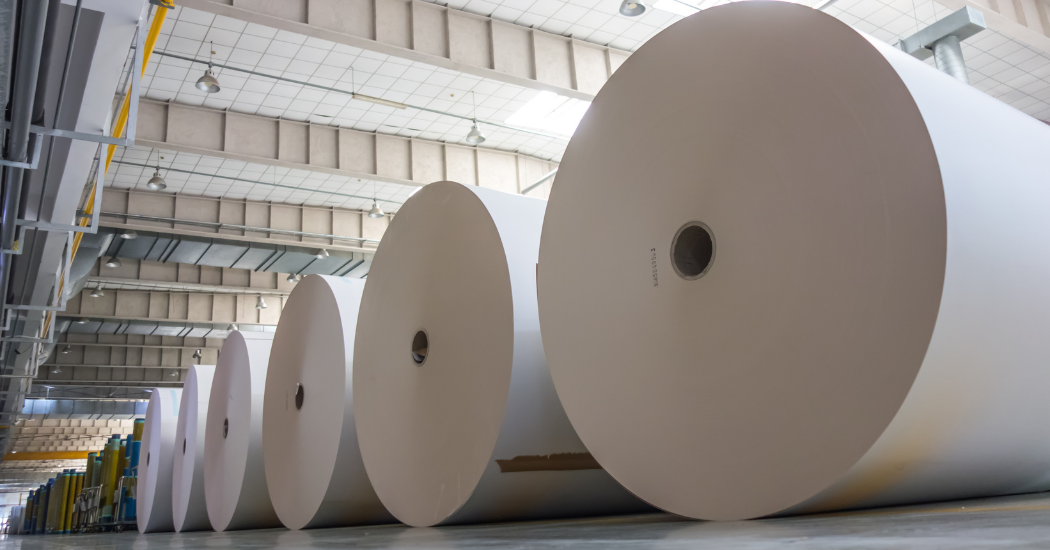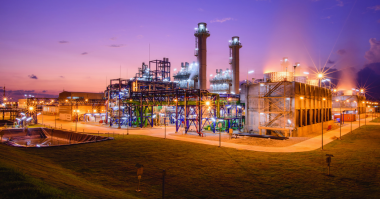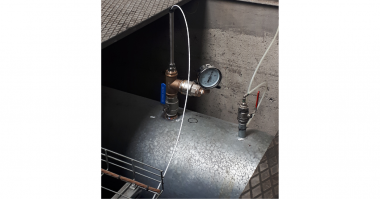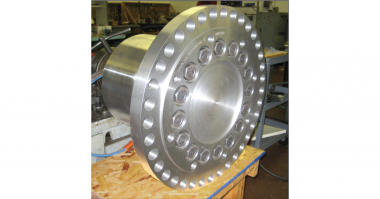The global consumption of paper and paperboard has reached over 420 million tons per year, with China and the USA consuming almost half of all paper-based products manufactured worldwide. The trend is turning from traditional paper to more sophisticated products such as demanding packaging solutions and specialty papers. To keep up with the demand, pulp and paper mills require a continuous flow of oil-free compressed air to supply the near-constant production rate.
Paper and board products are used across almost all industries for packaging, labels, etc. Manufacturers need to maintain the highest standards to ensure consumer safety. This sets strict quality requirements for compressed air systems as well. This article explains how compressed air is used in the pulp, paper and board industry and how oil-free air compressors help the mills to comply with safety guidelines and to create more efficient production practices.
Compressed air applications and requirements
Compressed air is used throughout the entire process, all the way from separating and cleaning the raw pulp fiber to the final product. Oil-free compressed air is a mandatory utility in every step as process and instrument air. Different standards and regulations are set to guarantee safe and clean products.
The International Organization for Standardization recently released guidelines for air purity in the manufacturing sector. The ISO 8573-1 (2010) ruling states that air compressors marketed as oil-free and used for manufacturing must have no oil emissions to receive a class zero status.
In the United States, the Environmental Protection Agency (EPA) regulates pollutants in the pulp and paper industry. This ensures that paper products do not contain oil or other contaminants that could harm people or the environment.
Because many paper products are used in packaging for food, beverages, and pharmaceuticals, the U.S. Food & Drug Administration (FDA) also plays an important role in quality control. According to the Code of Federal Regulations (CFR) Title 21 , packaging may not contain any substances deemed harmful for human consumption, including oil used for powering and lubricating air compressor parts.

Oil-free compressor technology
It is important to note that dry rotary screw air compressors generally used in the pulp, paper and board industry and marketed as oil free in fact do require oil for lubrication. This oil can work its way into the air stream. Contrary to traditional “oil-free” technologies, the HSR high-speed turbocompressor is genuinely 100% oil-free.
The HSR turbocompressors use active magnetic bearing (AMB) technology that levitates the motor shaft magnetically. The gearless drive unit of the HSR uses titanium turbo impellers that do not touch and will not wear due to friction. This eliminates the need for maintenance. There are no gears or bearings to lubricate, no mechanical seals or any other parts that touch or wear and thus no oil and no oil filters.
The variable speed driven (VSD) turbocompressors are designed to keep the network pressure stabilized within tight parameters in the designated variable speed range. Sulzer’s HSR turbocompressors use a 3-stage core that is remotely monitored and controlled to ensure reliability and consistency in the manufacturing process.
Efficient manufacturing with cost-effective compressed air
Compressed air accounts for up to 10% of all energy consumption in the manufacturing industry. For an industry such as pulp, paper and board manufacturing that requires 24/7 continuous operation, air pressure control is critical for efficiency and cost-effectiveness. Reliability is another must. Interruptions in the production because of maintenance or breakdowns are expensive, so the mills need air compressors that deliver clean compressed air reliably.
Sulzer’s maintenance-free HSR turbocompressors are optimized for a wide output capacity range. This enables the units to work more efficiently at a low range when less power is required and to avoid costly peaks in energy consumption. The result is more cost-effective compressed air.
Eco-friendly manufacturing
While the pulp, paper and board industry has made significant progress towards more eco-friendly practices by utilizing recycled products and minimizing emissions, energy consumption is still a major contributor to the overall carbon footprint.
Sulzer’s energy-efficient HSR turbocompressors use a standard liquid cooling system that allows the unit to recapture up to 93% of the compressor power to be used for heating, drying, or driving other equipment. In addition, the VSD motor offers increased energy savings because it can control the unit’s speed depending on the compressed air needs of the plant. The compressor does not have to operate at full capacity all the time.
Furthermore, the HSR oil-free compressors are eco-friendly thanks to their magnetic levitation technology that does not produce any waste. They enable one more step towards a greener environment.
Read more about the HSR turbocompressor www.sulzer.com/hsr-turbocompressor.
(Image Sources: big_white_paper_rolls_on_floor_shutterstock_1418246150 / pine_agroforestry_shutterstock_119409121_compressed)
About Sulzer
Sulzer is a global leader in fluid engineering. We specialize in pumping, agitation, mixing, separation and application technologies for fluids of all types. Our customers benefit from our commitment to innovation, performance and quality and from our responsive network of 180 world-class production facilities and service centers across the globe. Sulzer has been headquartered in Winterthur, Switzerland, since 1834. In 2020, our 15’000 employees delivered revenues of CHF 3.3 billion. Our shares are traded on the SIX Swiss Exchange (SIX: SUN). The Pumps Equipment division specializes in pumping solutions specifically engineered for the processes of our customers. We provide pumps, agitators, compressors, grinders and screens developed through intensive research and development in fluid dynamics and advanced materials. We are a market leader in pumping solutions for water, oil and gas, power, chemicals and most industrial segments.





Comments